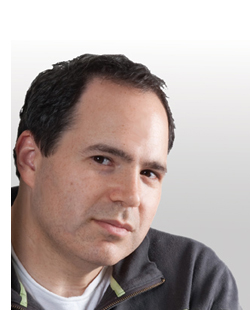
Steve Jobs, late cofounder of Apple Computers, had a reputation as a passionate business leader and modern folk hero. In 1999, one of Jobs’s friends said, “He is single-minded, almost manic, in his pursuit of excellence.” That’s certainly a character trait we scientists can admire.
Jobs was also revered for being a first-rate salesman. While salesmanship may not be the first quality scientists aspire to, successful scientists know that they need to sell themselves in order to get jobs and win grants, especially in these tough economic times.
Part of what made Jobs so great at selling his ideas was his optimism and enthusiasm. Jobs peppered his presentations with words like “extraordinary,” “amazing,” “stunning,” “revolutionary,” and “incredible.” When he gave the opening presentation at the computer expo Macworld ’08, he began his talk with open arms, a broad grin, and the words “We’ve got some great stuff for you. There’s clearly something in the air today.” That kind of enthusiasm helped Apple sell 20,000 iPods every day.
The importance of optimism
Maybe we can’t all match Job’s flair for presentations, but his choice of words—“best,” “great,” “awesome”—provide a clue about the right attitude to have when it comes to selling our science.
Enthusiasm is not something they teach in science class. Far from it. Graduate school is all about being tough and skeptical. But as you may remember from kindergarten, everybody likes people who are positive and enthusiastic; a smile on your face addresses people’s primitive needs for friendship and belonging. A good salesperson considers optimism to be part of his or her job.
To quote Adlai Stevenson, “Pessimism in a diplomat is the equivalent of cowardice in a soldier.” Or to quote Anne Kinney, director of the Solar System Exploration Division at NASA’s Goddard Space Flight Center, “If you have a method or idea and you believe it works, you have to be optimistic about it.”
The (negative) power of pessimism
To some degree, we can actually quantify just how important enthusiasm is. For some reason, negative expressions leave a more lasting impression on our psyche than positive ones. Specifically, negative messages are five to seven times more powerful than positive ones. Studies show that when a married couple has more than five positive interactions for every negative one, the relationship is considered healthy. But if the couple starts having fewer than five positive interactions for every negative one, divorce is probably imminent.
If you’ve ever sat on a review panel or hiring committee, you have probably noticed that if someone says something strongly negative about an applicant, it leaves a lingering stain that can’t be erased unless several people override it. For this reason it’s important to have at least five to seven members on any decision-making panel. With fewer people on the panel, a single person’s bad feelings can swamp the process, turning it into a black-balling session instead of a thoughtful discussion.
Beating the odds
The disproportionately powerful effect of negativity in review panels is a consequence of human nature that we scientists need to be aware of. For example, if you’re writing a proposal or applying for a faculty position, you might have to impress a committee with slightly fewer members than it ought to have. That means your task might be more about eliminating negatives than dazzling people.
If you find yourself using negative words often—“no,” “useless,” “doubt,” “shouldn’t,” “skeptical,”—people might start associating that kind of unpleasant feeling with you. And it might take five to seven positive interactions to make that bad feeling go away.
Steve Jobs taught us so many things, including the craft of salesmanship, a crucial tool for scientists during these hard times. On behalf of nerds everywhere—we thank you.
This post was adapted from content originally published on the Scientific American blog.
Marc J. Kuchner (marc@marketingforscientists.com) is an astrophysicist at NASA, a country songwriter, and the author of the book Marketing for Scientists: How To Shine In Tough Times. His website can be found at http://www.marketingforscientists.com/.
